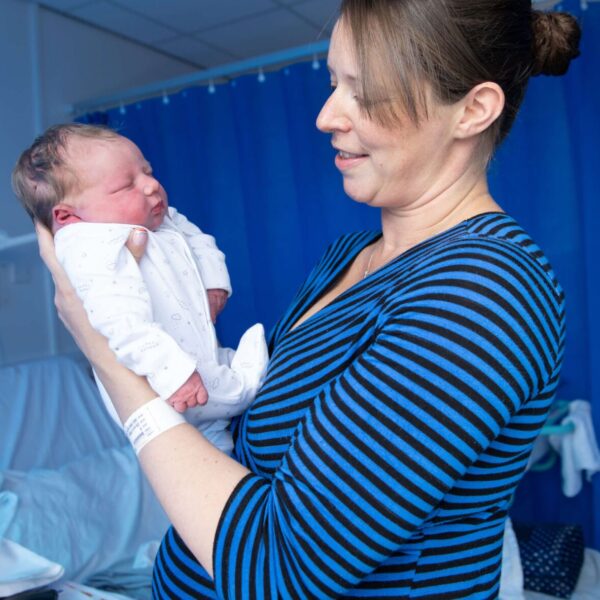Can breastfeeding reduce hospitalisation from common infectious diseases in childhood?: 2021 Annual Conference guest speaker Dr Claire Neill discusses the impact of breastfeeding
Dr Claire Neill is a Specialty Registrar in Public Health Medicine, currently in her final year of training. She trained as a General Practitioner and completed a research Masters with the Department of General Practice and Centre for Public Health at Queen’s University Belfast before going on to complete a Masters in Public Health in 2018.
As a doctor and clinician, I have had a strong interest in infectious disease prevention and have been aware of the impact of breastfeeding on hospitalisation from common infectious diseases in childhood. In 2017 I had my son, and I grew to appreciate the topic even more. Whilst I encountered challenges along the way in my breastfeeding journey, my awareness of its lifelong benefits is what made me persist, and in the end my son really thrived from it.
Although breastfeeding rates have been increasing across Northern Ireland, there is significant variability across the country and rates are still lower than in other parts of the world. There are also limited longitudinal studies on the subject of breastfeeding as it relates to infectious disease prevention, particularly in the western world.
In the UK, respiratory-tract infections are the most common cause of hospitalisation in children, followed closely by gastrointestinal infection. I set out to investigate whether breastfeeding is associated with reduced odds of hospitalisation from respiratory tract or gastrointestinal illness in children up to the age of two years in Northern Ireland and to identify the risk factors associated with not initiating breastfeeding and childhood hospitalisation from infectious disease.
Our study analysed 100,000 babies from 2012-2015, followed up over their first two years of life. We looked at a range of different influence factors, but the main interest was breastfeeding rates at different time points and the differences between partially and fully breastfed babies. These were assessed against outcomes of hospitalisation, and multivariable logistic regression was used to assess and quantify the independent association of both breastfeeding exposure and additional variables with each outcome.
Overall, we found that infants fully breastfed at six months had a 41% reduction in odds of hospitalisation for gastrointestinal infection and a 32% reduction in odds for respiratory-tract infections. Even at two years after cessation of breastfeeding, this is still reduced by 25%.
It was very encouraging that, even when adjusting for other factors, breastfeeding was significantly associated with reduced hospitalisation and mortality from common childhood infections, with reductions proportional to both the duration and exclusivity of breastfeeding. Longer-term protection also remained post-breastfeeding cessation until at least two years of age.
Following the research, I worked with the Breastfeeding Strategy Implementation Group to incorporate our findings into education and training materials, and then presented these to infant feeding groups and health trusts around Northern Ireland so that they could relay the valuable information to the mothers and families they work with and support.
Having this information is powerful – I know this from my own experience. It can make all the difference to be fully informed and have the data on just how impactful breastfeeding is. These findings can be particularly helpful for mothers who are ‘on the fence’ about breastfeeding and are able to seek out the help and care they may need.





